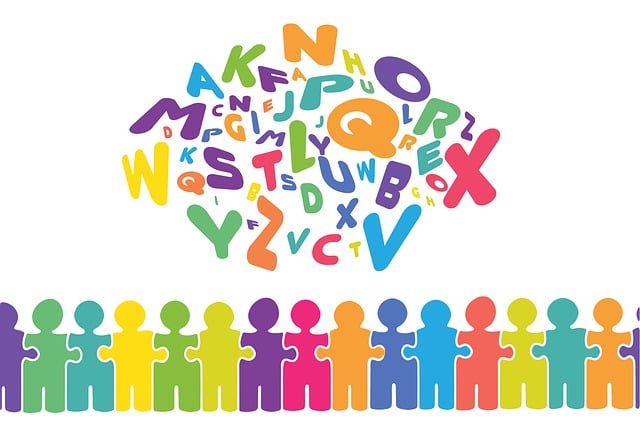UK Books and Novels Translation Services are essential for adapting British literary works for a global audience by accurately translating language, localizing cultural nuances, and preserving the author's original intent and voice. These services handle the complexities of regional dialects, idiomatic expressions, legal considerations, and ethical responsibilities to ensure that the humor, themes, and essence of UK literature are maintained while making these stories accessible and relatable across different cultures. From adapting classics like J.K. Rowling's "Harry Potter" series and Enid Blyton's works to ensuring that new narratives retain their authenticity and charm when presented to diverse linguistic and cultural markets, these translation services are vital for fostering cross-cultural engagement through storytelling. Authors seeking to reach international readers are advised to choose a translation service with expertise in handling literary content to guarantee their stories resonate with new audiences while respecting the integrity of the original material.
Navigating the intricate dance of language, translators are tasked with a delicate art form—ensuring UK books and novels resonate with readers across diverse regions. This article delves into the nuanced process of tailoring translations to regional preferences, emphasizing the importance of cultural nuances in UK literature translation. From understanding local tastes to identifying key differences in linguistic and cultural contexts, we explore how translators customize their work for British novels’ audience while considering the impact of dialects on translation accuracy. Strategies for adapting British humour and the legal and ethical implications of translating UK content are also scrutinized. Through case studies highlighting successful translations of UK books and novels, and guidance on selecting appropriate UK literature translation services, this article aims to equip translators with the knowledge and tools necessary to bridge cultural gaps and enrich global literary experiences.
- Understanding Regional Preferences in Book Translation
- The Role of Cultural Nuances in UK Books Translation
- Customizing Translation for British Novels' Audience
- Identifying Key Differences in Linguistic and Cultural Contexts
- The Impact of Dialects on Translation Accuracy for UK Literature
- Strategies for Adapting British Humour in Novel Translations
- Legal and Ethical Considerations in Translating UK Content
- Case Studies: Successful Translations of UK Books and Novels
- Choosing the Right Translation Services for Your UK Literature Needs
Understanding Regional Preferences in Book Translation

When tailoring translations for UK books and novels, it’s imperative to immerse oneself in the linguistic nuances and cultural context that define each region’s preferences. Translators must go beyond mere word-for-word translation, as regional preferences can significantly alter the reception and resonance of a story across different audiences. For instance, UK books often carry idiomatic expressions, humour, and references deeply rooted in British culture, which may not translate directly or at all into other languages without losing their intended impact. Understanding these nuances is crucial for UK Books and Novels Translation Services to deliver a translation that not only conveys the original meaning but also maintains the cultural integrity and emotional connection with readers in the target region.
Moreover, regional preferences extend beyond language to include dialects, colloquialisms, and local terminologies that can shape a reader’s interpretation of a narrative. A skilled translator, especially within UK Books and Novels Translation Services, will approach each text with an understanding of the target audience’s linguistic landscape, ensuring that the translation feels authentic and native to the reader. This level of cultural sensitivity and attention to detail is what distinguishes mediocre translations from those that truly resonate with audiences abroad, thereby expanding the reach and appeal of UK literature worldwide.
The Role of Cultural Nuances in UK Books Translation

UK books and novels, with their rich tapestry of cultural nuances and historical context, often present unique challenges in translation that extend beyond mere word-for-word conversion. Translation services specializing in UK literature must navigate the subtleties of British humour, regional dialects, and idiomatic expressions to accurately convey the original text’s essence. The role of a translator extends beyond linguistic equivalence; it encompasses the careful selection of terms and phrases that resonate with the target audience while maintaining the integrity of the author’s voice. This is particularly important when translating UK novels for international markets, where readers might have preconceived notions about British culture based on stereotypes or limited exposure. By incorporating cultural notes and contextual explanations, UK books and novels translation services can bridge the gap between source and target languages, ensuring that the narrative’s depth and cultural intricacies are preserved for a global audience to appreciate. This process of adaptation ensures that the translated text retains its appeal and authenticity, offering readers outside the UK an immersive experience that is both faithful to the original and accessible in their own language.
Customizing Translation for British Novels' Audience

When it comes to translating British novels for an international audience, a nuanced approach is paramount. The cultural context and linguistic subtleties inherent in UK books often carry specific meanings that may not resonate or be immediately understood by readers from different regions. To effectively bridge the cultural divide, translation services specializing in UK novels must go beyond mere word-for-word transfers. They must adapt idioms, slang, and references to fit the linguistic landscape of the target audience while maintaining the authenticity of the original text. This ensures that the humor, voice, and intent of the author are preserved, providing readers with an accurate representation of the source material.
Moreover, a successful translation service for UK books and novels should employ translators who have a deep understanding of both British culture and the target language’s cultural nuances. This bicultural competence allows them to tailor their translations in a way that is accessible yet authentic, ensuring that the essence of the story remains intact. By doing so, these translation services can offer readers an enriched reading experience that not only conveys the narrative but also immerses them in the cultural atmosphere of the original text, thereby enhancing the overall enjoyment and understanding of British novels for audiences worldwide.
Identifying Key Differences in Linguistic and Cultural Contexts

When tailoring translations for UK books and novels, it’s imperative to consider the linguistic nuances and cultural contexts that underpin the original text. Translators must identify key differences between the source and target languages, transcending mere word-for-word equivalence. This involves a deep understanding of regional idioms, colloquialisms, and societal references that resonate with the local audience. For instance, UK-specific terms and historical allusions may not have direct counterparts in the target language, necessitating careful adaptation to convey the same meaning and tone. Additionally, cultural sensitivities, norms, and values play a crucial role in shaping how content is perceived; thus, translators must ensure that these elements are accurately interpreted while maintaining the author’s original intent. UK Books and Novels Translation Services specialize in navigating such complexities to deliver translations that are not only accurate but also culturally appropriate and engaging for readers in different regions.
In the process of adapting UK books and novels for translation, it’s essential to engage with native speakers who possess a nuanced understanding of both the source and target languages, as well as the cultural contexts. This collaboration allows for a seamless integration of linguistic elements that preserve the essence of the original narrative while making it accessible and relatable to an international audience. The translator’s role extends beyond mere language conversion; it involves storytelling with a unique cultural voice that does justice to the source material’s spirit. By meticulously identifying and addressing these key differences, UK Books and Novels Translation Services ensure that the translated content resonates deeply with readers, transcending geographical barriers and fostering a universal appreciation for the literary work.
The Impact of Dialects on Translation Accuracy for UK Literature

In the realm of literature, the nuances of dialect play a pivotal role in conveying the authenticity and essence of UK books and novels. When translating British literature for international audiences, it is imperative to consider the specific dialects present within the text. The impact of regional language variations on translation accuracy cannot be overstated; each dialect carries its own unique set of vocabulary, idiomatic expressions, and pronunciation patterns that are deeply embedded in the cultural fabric. UK books and novels translation services must navigate these linguistic intricacies to ensure that the essence of the original text is preserved. A faithful translation not only respects the author’s voice but also resonates with readers who are familiar with the dialect, thereby maintaining a genuine connection across language barriers.
Moreover, the task of translating UK literature extends beyond mere word-for-word conversion; it requires an understanding of the cultural context and the regional flavor that often shapes the narrative. Translation services specializing in UK books and novels must employ translators who are not only linguistically proficient but also intimately acquainted with the local idioms, history, and social nuances. This level of expertise ensures that the translated text is accessible and appealing to readers while retaining the original’s depth and charm. The delicate balance between fidelity to the source material and readability in the target language is a testament to the skill and attention to detail required by UK books and novels translation services.
Strategies for Adapting British Humour in Novel Translations

In the realm of literary translation, adapting British humour within UK books and novels presents a unique set of challenges and opportunities. Translators must capture the subtleties and nuances that are often culture-specific to ensure that the intended tone and humour resonate with readers in different regions. A key strategy involves a deep understanding of British social contexts, slang, and historical references, which may be unfamiliar to non-English speaking audiences. UK Books and Novels Translation Services employ experts well-versed in these intricacies, who can identify humorous elements that require translation or cultural adaptation without losing the essence of the original text. For instance, a play on words or a reference to a British historical figure may need to be substituted with an equivalent from the target culture that elicits a similar comedic effect. This process requires not only linguistic skill but also creativity and a keen sense of cultural relatability. By meticulously adapting jokes, puns, and witty remarks while maintaining the author’s voice and style, translators can ensure that the humour remains intact and enhances reader engagement, making UK books and novels accessible and enjoyable to a global audience. This careful balance is crucial for successful translation, as it preserves the original text’s comedic intent while making it relevant and relatable to readers in different linguistic and cultural contexts.
Legal and Ethical Considerations in Translating UK Content

Navigating the nuances of legal and ethical considerations in translating UK content necessitates a sophisticated understanding of both the source and target linguistic and cultural contexts. When UK books and novels undergo translation for international audiences, it is imperative to adhere to copyright laws that govern intellectual property rights. These legal frameworks ensure that the original creators’ rights are protected, and their works are not unlawfully appropriated or altered. Translation services must be vigilant in securing the necessary permissions for translating and distributing content across borders, ensuring compliance with international copyright regulations.
Moreover, ethical considerations extend beyond legality to encompass the responsible representation of cultural nuances, societal values, and the authenticity of the translated text. Translators must exercise discretion in conveying themes, humor, and cultural references that are specific to the UK. This is crucial not only for maintaining the integrity of the original work but also for respecting the diversity of reader experiences. Ethical translation practices prioritize fidelity to the source material while making it accessible and relevant to readers in different regions. UK books and novels translation services that excel in this domain not only honor the original content but also foster a deeper engagement with audiences worldwide, bridging cultural divides through the universal language of storytelling.
Case Studies: Successful Translations of UK Books and Novels

UK books and novels often carry a rich tapestry of cultural nuances and linguistic intricacies that are pivotal to their appeal. To effectively resonate with audiences beyond the UK, translation services must tailor their approach to reflect regional preferences, ensuring that the essence and intent of the original text are preserved. A prime example of successful regional adaptation is the translation of J.K. Rowling’s “Harry Potter” series. The translators not only rendered the narrative into various languages but also adapted cultural references, idiomatic expressions, and humor to align with the readers’ local contexts, thereby enhancing the story’s accessibility and appeal across different regions. Another notable case is the translation of works by Enid Blyton, which have been meticulously adapted to suit diverse linguistic and cultural markets while maintaining the author’s distinctive voice and the stories’ core charm. These translations are not mere transpositions of text but are carefully crafted to resonate with the local readers, ensuring that the UK books and novels translation services deliver content that is both authentic and engaging to each target audience.
Choosing the Right Translation Services for Your UK Literature Needs

When embarking on the mission to bring UK books and novels to a global audience, selecting the right translation services is paramount. The intricacies of language extend beyond mere word-for-word conversion; they encompass cultural nuances, regional dialects, and the idiomatic expressions that give texts their unique flavour. For instance, the subtleties in the use of British English versus American English can significantly impact reader engagement and comprehension. UK Books and Novels Translation Services that specialise in literary translations understand this nuance and employ translators with expertise in both the source and target languages as well as deep knowledge of the cultural context.
Moreover, these tailored translation services go beyond linguistic precision; they ensure that the essence of the original text is preserved while navigating the complexities of local idioms and expressions. This is crucial when aiming to resonate with readers in different regions who may have varying degrees of familiarity with the source culture. By choosing a UK Books and Novels Translation Service that has a track record of handling similar projects, authors can rest assured that their works will be meticulously translated to engage new audiences while retaining the authenticity and integrity of the original narrative.
In concluding, it is clear that tailoring translations to regional preferences, particularly for UK books and novels, is a multifaceted endeavor that requires a keen understanding of cultural nuances, linguistic contexts, and the unique elements of British humour. The process involves meticulous analysis to ensure translations resonate with the intended audience while maintaining the integrity of the original content. Legal and ethical considerations further underscore the importance of selecting specialized UK books and novels translation services that can navigate these complexities effectively. The case studies presented exemplify the positive outcomes when translators successfully adapt content for a global readership, confirming the critical role these services play in bringing British literature to a wider audience. As the demand for culturally sensitive translations grows, the need for professional UK books and novels translation services becomes increasingly paramount to bridge cultural divides through the universal language of storytelling.
